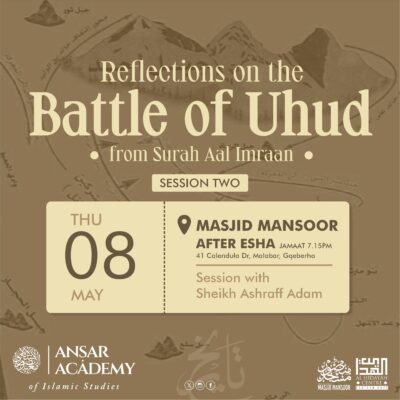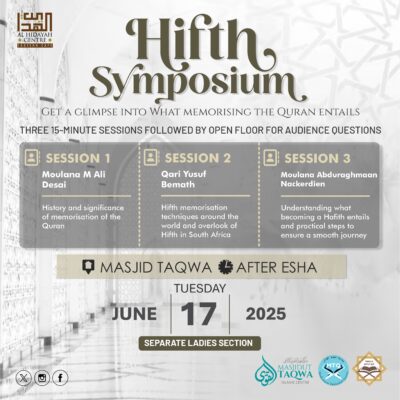Imam Malik ibn Anas rahimahullah was one of the most respected scholars of fiqh. Once a man came to him from far away and asked him 40 questions. Imam Malik rahimahullah only answered four of them and for the rest of the 36 questions he replied, “I don’t know.”
The man was surprised and asked Imam Malik rahimahullah: “What should I tell people about these 36 questions for which you said ‘I don’t know’?” Imam Malik rahimahullah replied that the man should tell the people that Malik says: “I don’t know,” “I don’t know,” “I don’t know.”
It was commonly said that if somebody wrote down Imam Malik rahimahullah’s answers to questions, he could easily fill pages with “I don’t know” before writing an actual answer.
Imam Shabi rahimahullah said: “(Saying) ‘I don’t know’ is half of knowledge.” (Darimi 186)
Hazrat Ali radhiallahu anhu said: “The one who is asked about something for which he has no knowledge should not be embarrassed to say: ‘Allah Ta’ala knows best’.”
Imam Malik rahimahullah said: “It is from the insight of a man of knowledge that he says: ‘I don’t know’.”
Imam Shabi rahimahullah was once asked about something to which he replied: “I don’t know.” He was told: “Aren’t you ashamed to say this whereas you are the knowledgeable man of Basra and Kufa (Iraq)?” He replied: “I do not feel shy for that which even the Angels did not feel ashamed to admit: “We do not have any knowledge except that which You have taught us.” (Quran 2:32)
Yahya ibn Saeed said to Abdullah ibn Umar radhiallahu anhuma: “How strange! You say you do not know whereas you are the son of the Imam of guidance!” Ibn Umar radhiallahu anhuma replied: “The one who is even stranger than me is he who speaks without knowledge, and speaks without any concrete information.”
Imam Abu Yusuf rahimahullah was asked a ruling and he answered: “I do not know this ruling.” The questioner exclaimed: “You take wages from the public treasury every day and then you say: ‘I don’t know’?” Abu Yusuf rahimahullah answered: “I only take in proportion to my knowledge. If I had to take according to what I don’t know, the entire world’s riches would not be sufficient for me!”
Sign of Competence
We are conditioned to having and providing quick, answers as a sign of competence and leadership. We behave as though any gaps in knowledge should be hidden at all cost. But is this desire to have an answer actually helping you? How often do we trade factual accuracy for immediacy? Why do people find it so hard to say – “I don’t know”?
Effective leaders are able to set a vision, get others to buy into it and mobilize them to produce the change required to achieve this vision. None of this requires having all the answers. Yet, many people’s idea of a leader involves someone who is able to see what others don’t. This can often translate to never saying “I don’t know.”
The desire to “know all” is particularly strong in areas we consider to be our expertise and where we find it hard to admit not knowing something. Knowledge is important.
Not Knowing Doesn’t Make You Impotent
“I don’t know” is a legitimate, acceptable and more importantly— responsible response when you don’t know an answer.
Your credibility doesn’t lie in your ability to provide encyclopedic knowledge on demand. We have the internet for that.
Instead, your credibility lies in your ability to track down, research and synthesize information and provide that information in the proper format to the proper people.
The physicist Richard Feynman once described how you can spot a real expert versus a phony. Look for three little words, “I don’t know.” The phony will have all the answers, while the expert will be willing to admit what they don’t know. Real experts are relentlessly curious, they will demand explanations for things that many others simply accept as rules. [Shawn Hunter of Mindscali]
The ability to say “I don’t know” is a common trait of highly intelligent people.
Kristi Hedges of Forbes highlights one way to confidently say, “I don’t know.” Say, “That’s an important question, and I don’t want to give you a half answer. Let me get back to you on that by end of day.”
As a Forbes article says: The next time you are asked something you don’t immediately know the answer to, try starting with “I don’t know…”








COMMENTS